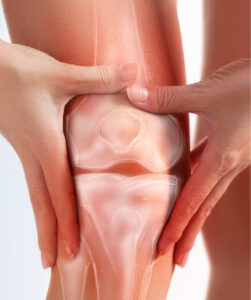Meniscus Deficiency Specialist

Have you had a prior injury to the knee that involved your meniscus? Are you now experiencing pain, stiffness or locking in the knee? If so, you may have a meniscus deficiency. Meniscus deficiencies can occur in one, or both of the menisci in the knee. Meniscus deficiency specialist, Doctor Riley J. Williams provides diagnosis as well as surgical and nonsurgical treatment options for patients in Manhattan, Brooklyn, New York City and surrounding areas who have sustained a previous knee injury and now have a meniscus deficiency. Contact Dr. Williams’ team today!
What is meniscal deficiency?
The medial meniscus and lateral meniscus are two crescent shaped pieces of fibrocartilage that act as shock absorbers between the bones in the knee. Meniscus deficiency occurs when the meniscus is worn, damaged or torn. In the meniscus deficient knee, the bones and the remaining cartilage are subject to added stress and degeneration. The absence of the meniscus is referred to as a meniscus deficiency. This knee condition can contribute to the onset of arthritis and can cause misalignment of the bones in the knee joint. Dr. Riley J. Williams has extensive experience in treating patients in Manhattan, Brooklyn, New York City, NY and surrounding areas who have a meniscus deficiency.

What causes a meniscus deficiency?
Meniscus deficiencies are most often the result of prior knee surgery. Each knee has two discs of cartilage, each called a meniscus (medial and lateral). If the meniscus becomes torn or injured, patients may need to have part, or all of it removed; this is called a meniscectomy. While a meniscectomy can relieve symptoms of a torn or injured meniscus, it can cause future problems for the knee joint. Meniscus deficiency can cause an early development of osteoarthritis which can break down the bones in the joint.
What are symptoms of a meniscus deficiency?
- Pain in the knee, especially with movement
- Decrease in activity caused by pain
- Loss of function of the knee
- Stiffness in the knee joint
- Swelling
- Locking sensation
How is a meniscus deficiency diagnosed?
Dr. Williams will perform a physical examination of the affected knee and may order an x-ray, MRI scan, CT scan, or bone scan. He will look for misalignment of the joint, wear-and-tear within the joint and will determine the health of the structures within the knee. Dr. Williams will check the ligaments, health of the meniscus and will be able to determine if there is a meniscus deficiency.
What is the treatment for a meniscus deficiency?
Non-surgical treatment:
When possible, Dr. Williams will treat a meniscus deficiency conservatively. This may include:
- Activity modification
- Weight Loss
- Medication that reduces inflammation and helps with pain
- Physical therapy
- Bracing
- Knee injections
Surgical treatment:
When conservative measures fail to alleviate the painful symptoms of a meniscus deficiency, Dr. Williams may recommend one or more of the following procedures:
- Knee Arthroscopy – Can be used to clean up and remove unstable meniscus fragments
- Meniscal Allograft Transplantation (MAT) – Replaces the deficient meniscus with a donor meniscus
- High Tibial Osteotomy –Re-align the knee tibia bone to relieve pressure on the deficient meniscus area
- Partial or Unicompartmental Knee Replacement- For isolated cases of osteoarthritis when the meniscus cannot be repaired or replaced and there is exposed bone causing pain
- Total Knee Replacement – For advanced cases of osteoarthritis when the meniscus cannot be repaired or replaced and there is bone-on-bone degeneration.
For more information on meniscus deficiency, knee pain and the different treatment options available, please contact the office of Riley Williams, MD, knee specialist serving Manhattan, Brooklyn, New York City, NY and surrounding areas.
Locations
610 W 58th Street
New York, NY 10019
148 39th Street, 7th Floor
Brooklyn, NY 11232


